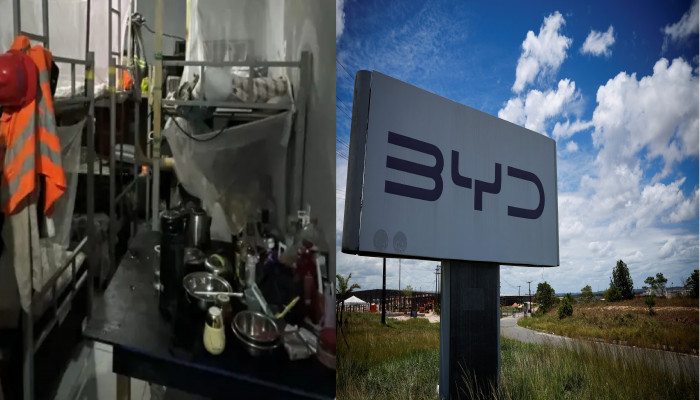Brazil halts China's BYD EV factory due to 'slave-like' conditions of labourers
- In Reports
- 05:23 PM, Dec 24, 2024
- Myind Staff
Brazilian authorities have halted the construction of a factory for Chinese electric vehicle (EV) company BYD due to reports of workers being treated under "slave-like" conditions. The authorities have accused the contractor of violating workers' rights, including creating a "degrading" environment, withholding workers' passports, and not paying their salaries.
At a news conference on Monday, the local labour prosecutor's office reported that 163 Chinese nationals were discovered working in "slavery-like conditions" at a building site for a facility owned by Chinese electric vehicle manufacturer BYD in the Brazilian state of Bahia. BYD declared that it has cut off its relationship with the building company in question and reaffirmed its dedication to "full compliance with Brazilian legislation." Authorities reported that the workers were hired by a different company in China and brought to Brazil illegally. They worked long hours, often exceeding the limits set by Brazilian law, sometimes working seven days a week without a break. Their living conditions were described as poor and degrading, among other violations of labour laws.
Forced labour is one example of "slavery-like conditions" in Brazil, but they also include debt bondage, poor working conditions, excessive hours that endanger the health of employees and any labour that infringes on human dignity. The workers were required to ask for permission before leaving their accommodations and at least 107 had their passports taken by their employers, according to labour inspector Liane Durao. She also mentioned that the working conditions at the site were unsafe.
China has frequently faced global criticism for its human rights record, with ongoing reports of poor working conditions and widespread mistreatment. Over the years, there have been stories about the exploitation of vulnerable groups, such as ethnic minorities and workers in various sectors across the country. Volkswagen AG, a German automaker that has been in the spotlight for the wrong reasons for years, has now given in to investor pressure and announced that it is leaving China's Xinjiang region. Volkswagen has decided to stop its operations in Xinjiang, as investors are concerned about the future of the sites the company had acquired there. This move comes amid ongoing campaigns by human rights groups highlighting human rights violations in the western Chinese region.







Comments